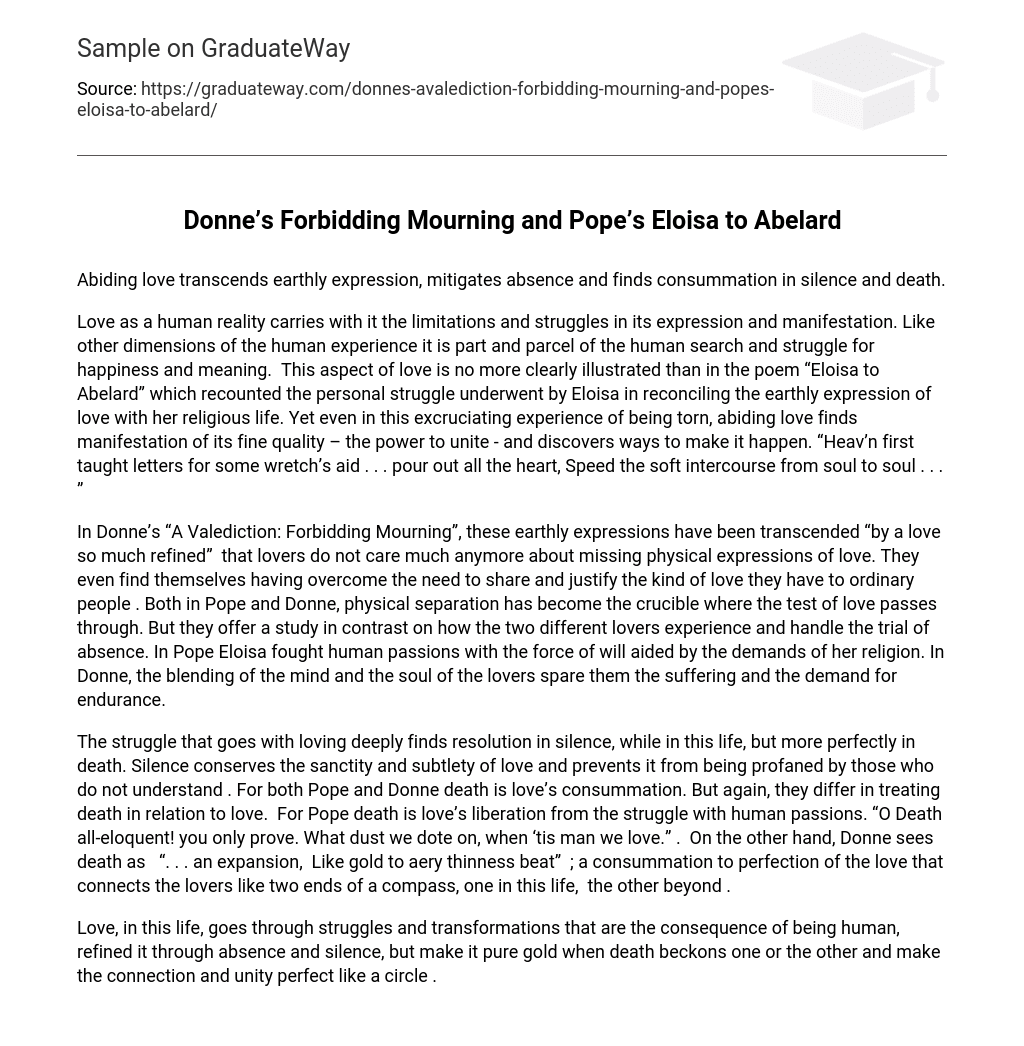Abiding love transcends earthly expression, mitigates absence and finds consummation in silence and death.
Love as a human reality carries with it the limitations and struggles in its expression and manifestation. Like other dimensions of the human experience it is part and parcel of the human search and struggle for happiness and meaning. This aspect of love is no more clearly illustrated than in the poem “Eloisa to Abelard” which recounted the personal struggle underwent by Eloisa in reconciling the earthly expression of love with her religious life. Yet even in this excruciating experience of being torn, abiding love finds manifestation of its fine quality – the power to unite – and discovers ways to make it happen. “Heav’n first taught letters for some wretch’s aid . . . pour out all the heart, Speed the soft intercourse from soul to soul . . . ”
In Donne’s “A Valediction: Forbidding Mourning”, these earthly expressions have been transcended “by a love so much refined” that lovers do not care much anymore about missing physical expressions of love. They even find themselves having overcome the need to share and justify the kind of love they have to ordinary people . Both in Pope and Donne, physical separation has become the crucible where the test of love passes through. But they offer a study in contrast on how the two different lovers experience and handle the trial of absence. In Pope Eloisa fought human passions with the force of will aided by the demands of her religion. In Donne, the blending of the mind and the soul of the lovers spare them the suffering and the demand for endurance.
The struggle that goes with loving deeply finds resolution in silence, while in this life, but more perfectly in death. Silence conserves the sanctity and subtlety of love and prevents it from being profaned by those who do not understand . For both Pope and Donne death is love’s consummation. But again, they differ in treating death in relation to love. For Pope death is love’s liberation from the struggle with human passions. “O Death all-eloquent! you only prove. What dust we dote on, when ‘tis man we love.” . On the other hand, Donne sees death as “. . . an expansion, Like gold to aery thinness beat” ; a consummation to perfection of the love that connects the lovers like two ends of a compass, one in this life, the other beyond .
Love, in this life, goes through struggles and transformations that are the consequence of being human, refined it through absence and silence, but make it pure gold when death beckons one or the other and make the connection and unity perfect like a circle .





